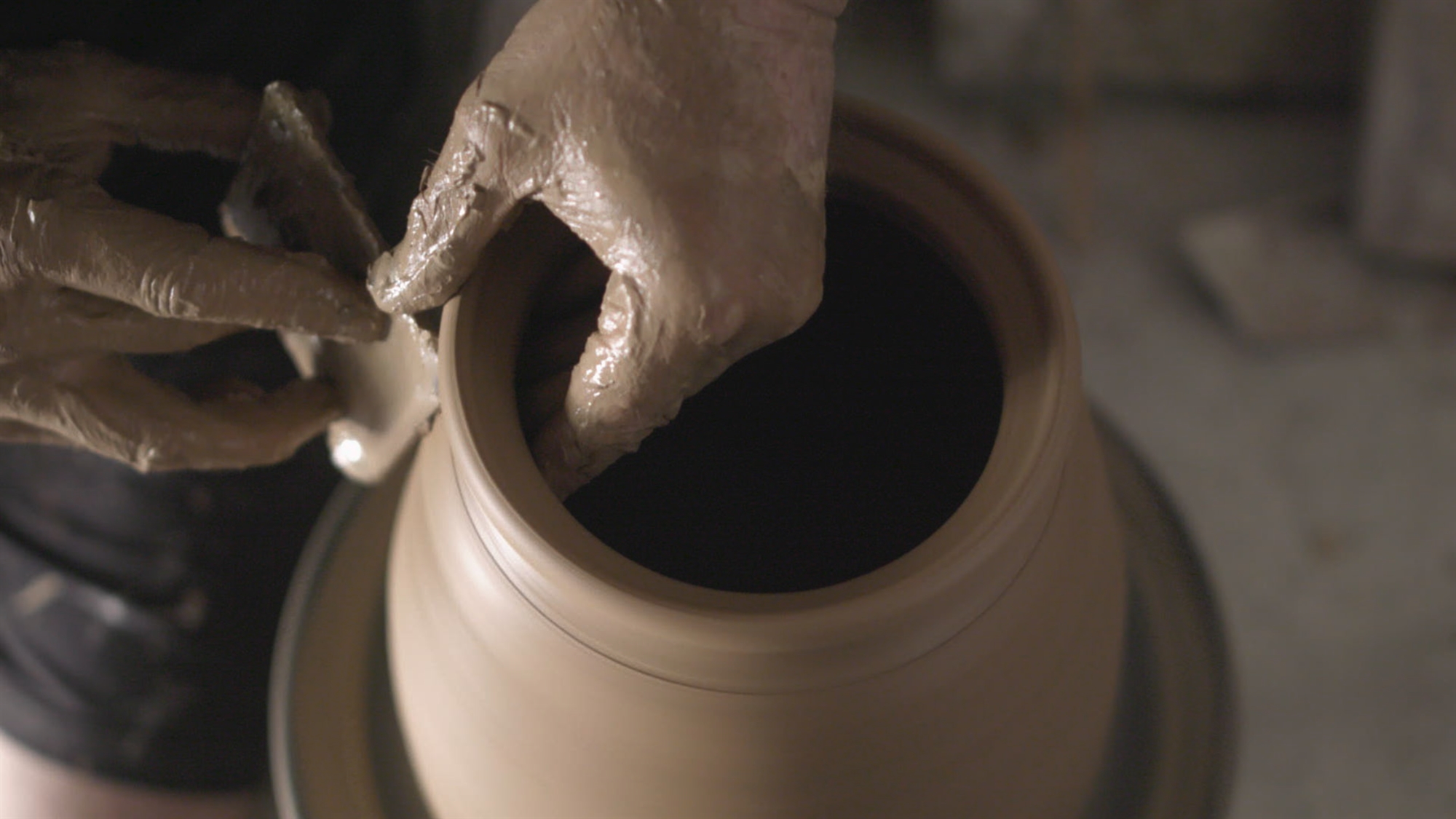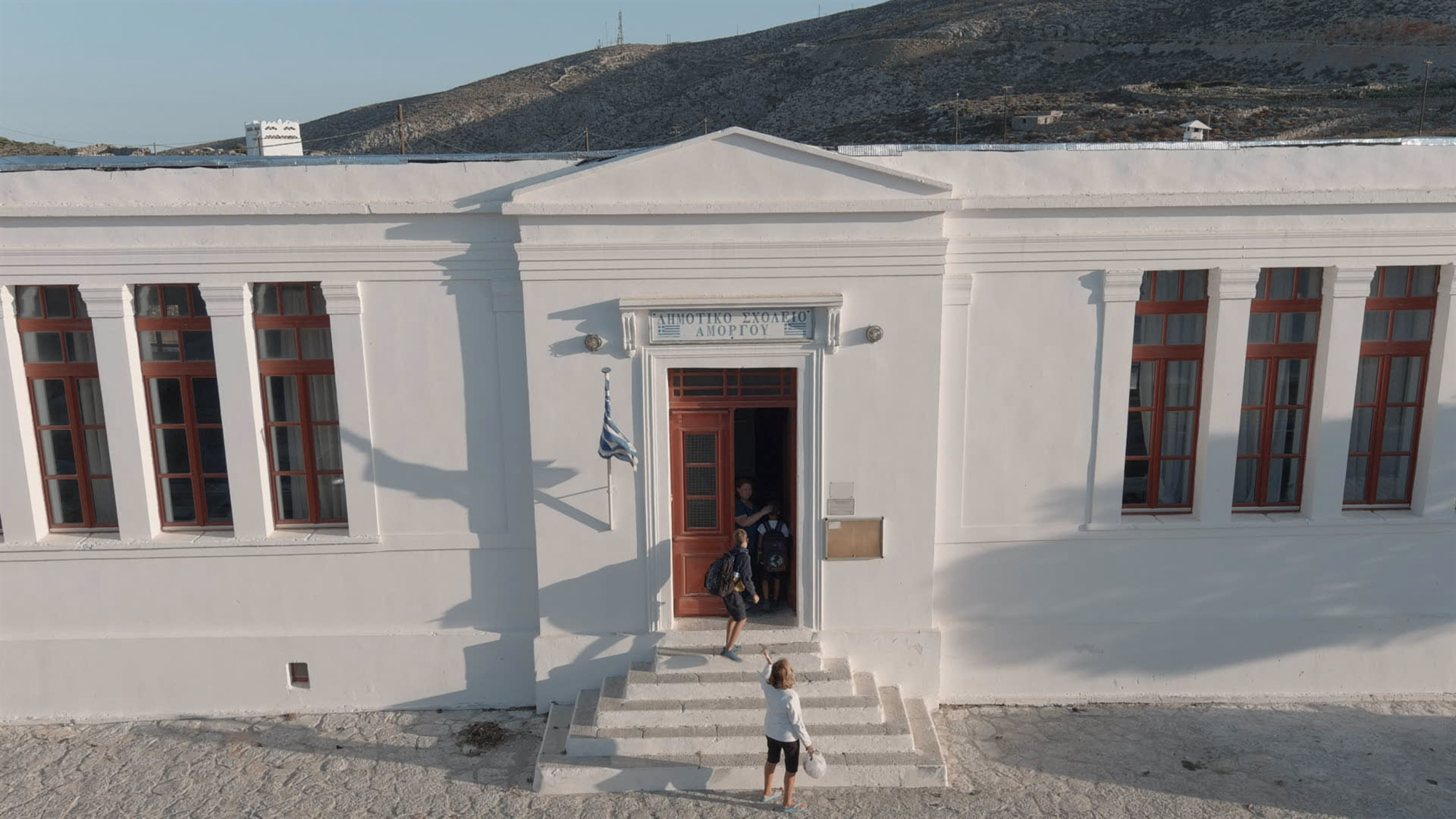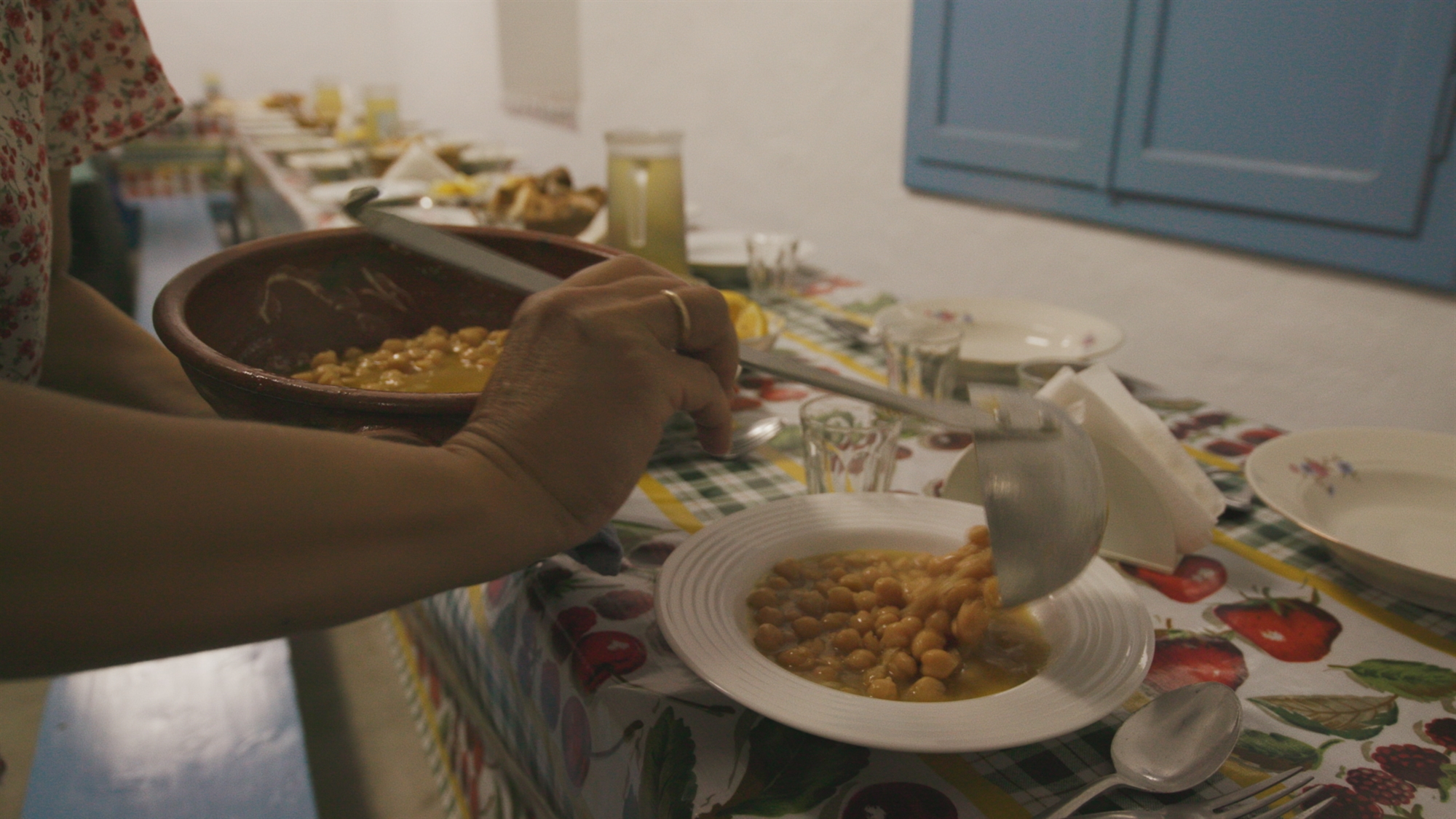
When Robert McCabe was asked to photograph the Cyclades in the 1950s, the reception he received in the islands was especially warm. “We felt like explorers discovering new cultures.” How not to love these islands?
“Small islands of land in the ocean that connects Asia with Europe are stations for trade and the exchange of ideas, from prehistoric times to the present day,” describes the famous Aegean cluster Dimitris Atanasoulis, director of the Cyclades Antiquities Authority. He emphasizes that the density of monuments and their archaeological heritage is disproportionately large in relation to their size. “You can walk into a stone cell in the countryside and not be sure if it was built by our grandfather, if it was built in Ottoman, Venetian, Byzantine, ancient or prehistoric times.”
Today, many of those black-and-white images of natural beauty and tradition that McCabe captured with his lens are lost to thoughtless development. According to Dimitris Karavellas, originally from the director of WWF Greece. “These elements that make up a distinct identity, and nature and biodiversity being one of them, are currently under threat of extinction.”

Heritage
At a time when local societies are facing the phenomenon of over-tourism, abandonment of traditional practices, climate crisis, the initiative of the Museum of Cycladic Art provides the means as well as the motivation for the active participation of the islands in the preservation of their heritage. It is about the Cycladic identity. Its purpose is to preserve and emphasize the Cycladic identity. It functions as a fundraiser and sponsorship platform through which it supports organizations active in the Cyclades with programs related to culture, biodiversity, intangible cultural heritage.
How did the initiative start? “The Museum of Cycladic Art would not exist without the Cycladic Islands and Cycladic culture. So I thought that our museum should and can offer the Cyclades in a sustainable and meaningful way. This is how we created the Cycladic Identity initiative,” Sandra Marinopoulou, president and managing director of the Museum of Cycladic Art, tells K. And he adds: “We feel obliged to be part of the Cyclades, to protect them in order to preserve their Cycladic identity. Our goal is to be closer to local communities and learn about their needs. Be supporters and partners. So that work is done not only for the present, but also for the future.”
The Advisory Committee provides significant funding and contributes to the formulation of strategy and the selection of programs for funding, while the evaluation of proposals is carried out by the Scientific Committee, consisting of Dr. Dimitris Atanasoulis (Director of the Office of Cycladic Antiquities), Dr. D. and Technology at the Research Center for Archeology and culture of the Cyprus Institute), Dimitris Caravella (CEO of WWF Greece), Dr. Angelica Cosmopoulou (archaeologist and sustainability consultant).
The program was presented to the mayors, deputy mayors and councilors of the eight islands and 10 proposals were selected. The next funding period is for projects on other islands to be selected in the fall.
The goal is to attract donations and sponsorships that fund organizations and actions in the Cyclades.
“Eforia is inclusive and interested in collaborating with everyone who is ready to contribute to the culture of the Cyclades,” says director D. Atanasoulis “K”, pointing out that “in the Cyclades, the productive paradigm is changing. Traditional pursuits, traditional pursuits, and even traditional social relationships are being discarded as tourism floods a particularly fragile landscape. And when I talk about the landscape, I mean not only the physical or cultural, but also the non-material, which is also in danger. Thus, the recording, the revival of the elements of intangible and tangible heritage is a matter of survival for the Cyclades and part of a holistic approach to heritage. We do not have seals, we see the monument not alone, but together with intangible heritage. We are also interested in a private person who wants to use the right granted to him by the Constitution to protect the monument.”
According to the director of EFA Cyclades, the biggest risk of losing traditions and customs is excessive tourism. “Tourist exploitation might not be that bad in some areas due to size. However, in the Cyclades, due to the small size of the islands, this has direct, tangible negative consequences. Therefore, we need to invest in the preservation of heritage, tangible and intangible, as well as in tightening the framework so as not to consume a sustainable resource of sustainable development. This is done not only through enforcement and regulations, but also in consultation with the community. Tourist overexploitation creates a paradigm shift in professions, in human relationships, and it affects everywhere, and not just in the area of thoughtless construction and waste of natural and cultural resources.

First line islands such as Mykonos, Santorini, Paros are in greater danger than Amorgos, Anafi, Sikinos and others. “However, the development of tourism is insatiable. When an island gets saturated, visitors look for the next one. Milos, for example, has an aggressive type of development, and it needs to be regulated,” emphasizes D. Atanasoulis and continues: “The announced special urban development plans are such a practice, the point is to complete them. Everything is at risk: gastronomy, agricultural production, pig carcasses, festivals, etc. As the world has turned to tourism, everything is under threat, even as they lose their authenticity as tourist attractions.”
According to Dr. Michael Boyd, “The Cycladic Identity Initiative helps the Cycladic people themselves to recognize those traditions that are declining and endangered, and allows them to implement sustainable programs to preserve and renew them, and also motivates them to explore new ways to preserve these traditions in conditions rapid development.”
What is the procedure for making donations? And how are they controlled? Sandra Marinopoulou explains that “the working mechanism is organized in such a way as to ensure transparency in the selection procedures for funded programs. We welcome proposals from organizations operating in the Cyclades, which are evaluated by the Scientific Committee based on certain criteria. Offers with the best average score are implemented. Progress is tracked through reports and field visits for live proof of work. The first programs supported by Cycladic Identity have begun to be implemented. One of them concerns the program “Ancient Quarries of Paros. Stability and passability of underground passages. Our team will visit them next week with a contractor and a specialized geotechnical engineer to conduct a geotechnical assessment of the site. This will be the first visit to a project funded by Cycladic Identity and we are excited to see the first project in action!”

To Kea and Kimolos
The non-profit enterprise of the municipality of Kea also joined the program of recording, filming, recording their traditional instrument players and creating small documentaries about the remaining older instrument players, as well as the Center for the Study and Dissemination of Myths and Fairy Tales, to create 20 podcasts with stories about the original musical compositions associated with the oral tradition of the island.
As well as Kimolist organizations for the “What the Ancients Knew…” festival in Kimolos, the Greek Society for the Environment and Culture for the cultural trails in Sikinos and the creation of a navigation and information application, the Poseidon Cultural and Ecological Association. for creating his website for the Donuss Oral History Archive, as well as the Andros Research Center for traditional water management practices in the central massif of the island. From Io the organization Cinemathesis for a cinematographic educational workshop for high school students to shoot video art of one minute monoplane each. KDEPPAM from Mykonos to create an online repository website recording old masters and stone building techniques, and the municipal public benefit enterprise of the municipality of Amorgos to record the oral testimonies of the old Amorgians.
Archaeologist and sustainable development consultant Angelika Kosmopoulou considers it necessary to “preserve this tradition, which is expressed in monuments, in tastes, in music, in human relations, in customs.” For gen. WWF Greece Director D. Caravella, it’s time to wake up to “see how we can restore the balance that once existed on these islands.”
Source: Kathimerini
Ashley Bailey is a talented author and journalist known for her writing on trending topics. Currently working at 247 news reel, she brings readers fresh perspectives on current issues. With her well-researched and thought-provoking articles, she captures the zeitgeist and stays ahead of the latest trends. Ashley’s writing is a must-read for anyone interested in staying up-to-date with the latest developments.